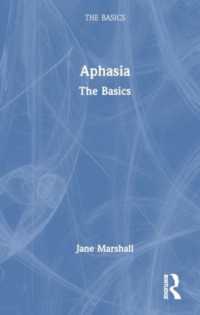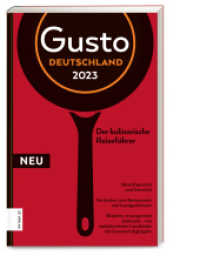基本説明
Identifies problem areas and how teachers can develop greater undrstanding of mathematical concepts in children with SEN.
Full Description
To what extent do curriculum subjects, particularly highly abstract ones such as Mathematics, have their own unique special needs?
This book celebrates the work done by subject specialists in mainstream classrooms to promote inclusive practice. It describes new and creative ways of developing mathematical thinking among pupils. Each chapter demonstrates reflective minds at work, close observation of learners, willingness to understand the students' thinking process and patient commitment to students over long periods of time.
Features of the book include:
how low-attaining students can think mathematically
numeracy recovery
task refusal in primary mathematics
progression in written calculation strategies for division
using graphic calculators with low-attaining pupils
generalising arithmetic: an alternative to algebra
learning support assistants in mathematics lessons
inclusion and entitlement, equality of opportunity and quality of curriculum provision.
Contents
Preface, Contributors, Introduction, 1 Is there a substitute for experience in learning?, 2 Low attaining students can think mathematically, 3 Numeracy recovery: a pilot scheme for early intervention with young children with numeracy difficulties, 4 What do children see? A study of children's representations of numbers and operations, 5 Difficulties in extended counting, 6 John's access to Pythagoras' theorem: inclusion and entitlement in action, 7 Count me out: task refusal in primary mathematics, 8 Working through complexity: an experience of developing mathematical thinking through the use of Logo with low attaining pupils, 9 A study of progression in written calculation strategies for division, 10 Using graphics calculators with low attaining pupils, 11 Generalising arithmetic: an alternative to algebra (or things to do with a plastic bag), 12 Watching, listening and acting: a case study of learning support assistants in primary mathematics lessons, 13 Responsive questioning in a mixed-ability group, 14 Inclusion and entitlement: equality of opportunity and quality of curriculum provision, Index








